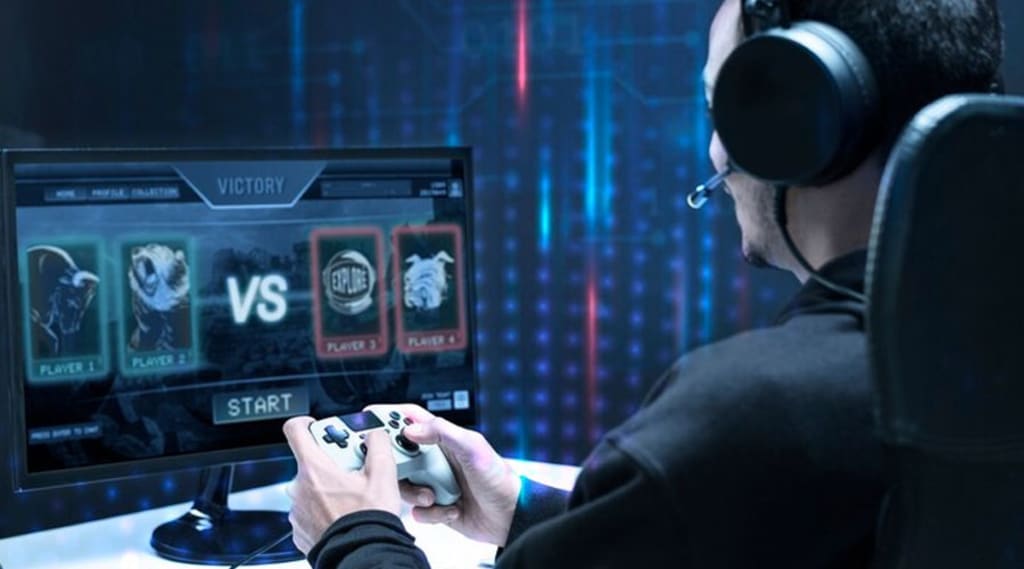Exploring the Potential of AI in Game Design and Development
"The Game-Changer: Unleashing the Power of AI in Game Design and Development"

Artificial intelligence (AI) has revolutionized numerous fields, and game development is no exception. AI in game design is no longer limited to simple decision-making or pathfinding algorithms; instead, it has evolved to become a sophisticated tool for creating engaging, immersive, and intelligent gameplay experiences. In this article, we will explore the potential of AI in game design and development, and its impact on the gaming industry.
AI can be used in various aspects of game development, including level design, character behavior, game mechanics, and more. Here are some of the ways AI is changing the game development landscape:
Procedural Generation
AI can be used to generate game content such as levels, environments, and characters. By analyzing player preferences and behavior patterns, AI can create unique and personalized experiences for each player. Procedural generation can save time and resources while also keeping the game fresh and exciting for players.
Adaptive Difficulty
AI can adjust the difficulty level of a game based on the player's skill level, making it more challenging or less frustrating. By monitoring the player's performance, AI can modify the game's parameters to maintain the optimal level of difficulty.
Natural Language Processing
AI can interpret and respond to natural language inputs, allowing players to interact with games using voice commands or text input. This can enhance the player's immersion and provide a more intuitive and natural gaming experience.
Behavior Prediction
AI can predict player behavior based on past interactions and adapt the game accordingly. For example, if a player is prone to aggressive behavior, AI can adjust the game to provide a more challenging experience. This can also help game developers to identify areas of the game that may need improvement or balancing.
Dynamic Storytelling
AI can create dynamic and non-linear storylines that adapt to the player's choices and actions. This can provide a more immersive and personalized experience for the player, and allow for greater replayability.
Smart NPCs
AI can be used to create more intelligent and responsive non-playable characters (NPCs). By analyzing player behavior and preferences, NPCs can adapt their behavior and dialogue to provide a more engaging and realistic experience.
Quality Assurance
AI can be used to test games for bugs and glitches, allowing developers to identify and fix issues quickly and efficiently. AI can also analyze player feedback and behavior to identify areas for improvement and refine the game's design.
Overall, AI has the potential to transform game development and create more immersive and engaging experiences for players. However, there are also some challenges and potential drawbacks to consider. Here are some of the issues that may arise with the use of AI in game design:
Ethical Concerns
As AI becomes more advanced, there may be ethical concerns around the use of AI in game design. For example, AI-generated content may perpetuate harmful stereotypes or biases, or AI NPCs may behave inappropriately or offensively.
Over-reliance on AI
There is a risk that game developers may become overly reliant on AI, leading to a loss of creativity and innovation. Developers must strike a balance between using AI as a tool for enhancing gameplay and relying too heavily on AI-generated content.
Implementation Costs
Implementing AI in game development can be expensive and time-consuming, especially for smaller indie developers. There may also be a lack of skilled AI developers who can create and implement AI solutions for game development.
Lack of Player Control
There is a risk that AI-generated content may not be to the player's liking or may feel too predictable or formulaic. Players may also feel that their choices and actions are being limited or controlled by the game's AI.
In conclusion, AI has the potential to revolutionize the game development industry. With the ability to create more realistic environments, adaptive NPCs, and personalized gaming experiences, AI can enhance gameplay and improve overall game performance. While there are some potential drawbacks to the use of AI in game development, the benefits are clear. As AI technology continues to advance, we can expect to see even more exciting developments in the world of gaming.





Comments
There are no comments for this story
Be the first to respond and start the conversation.